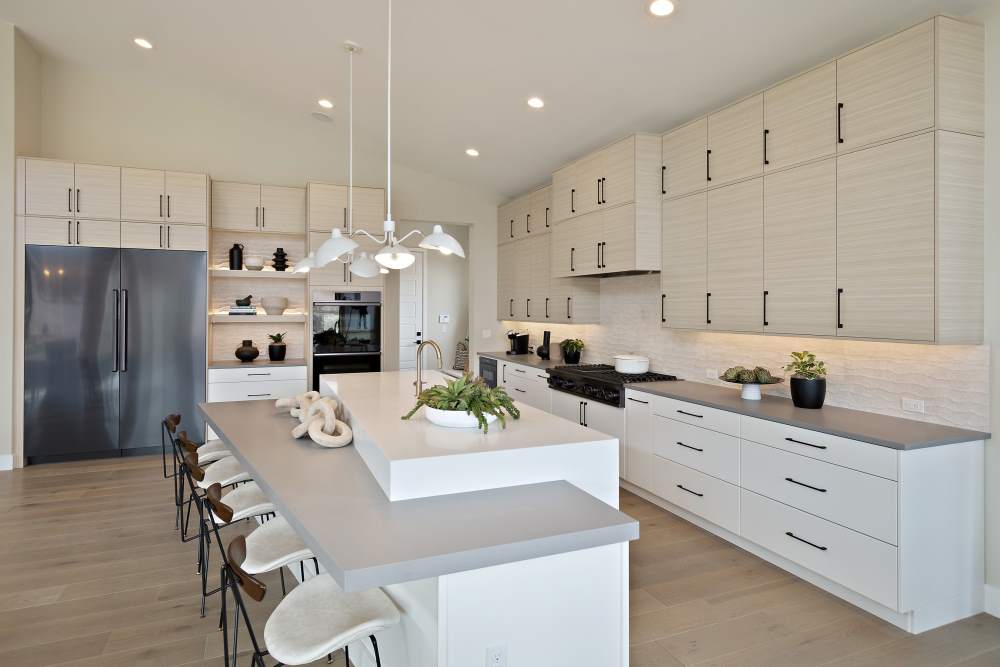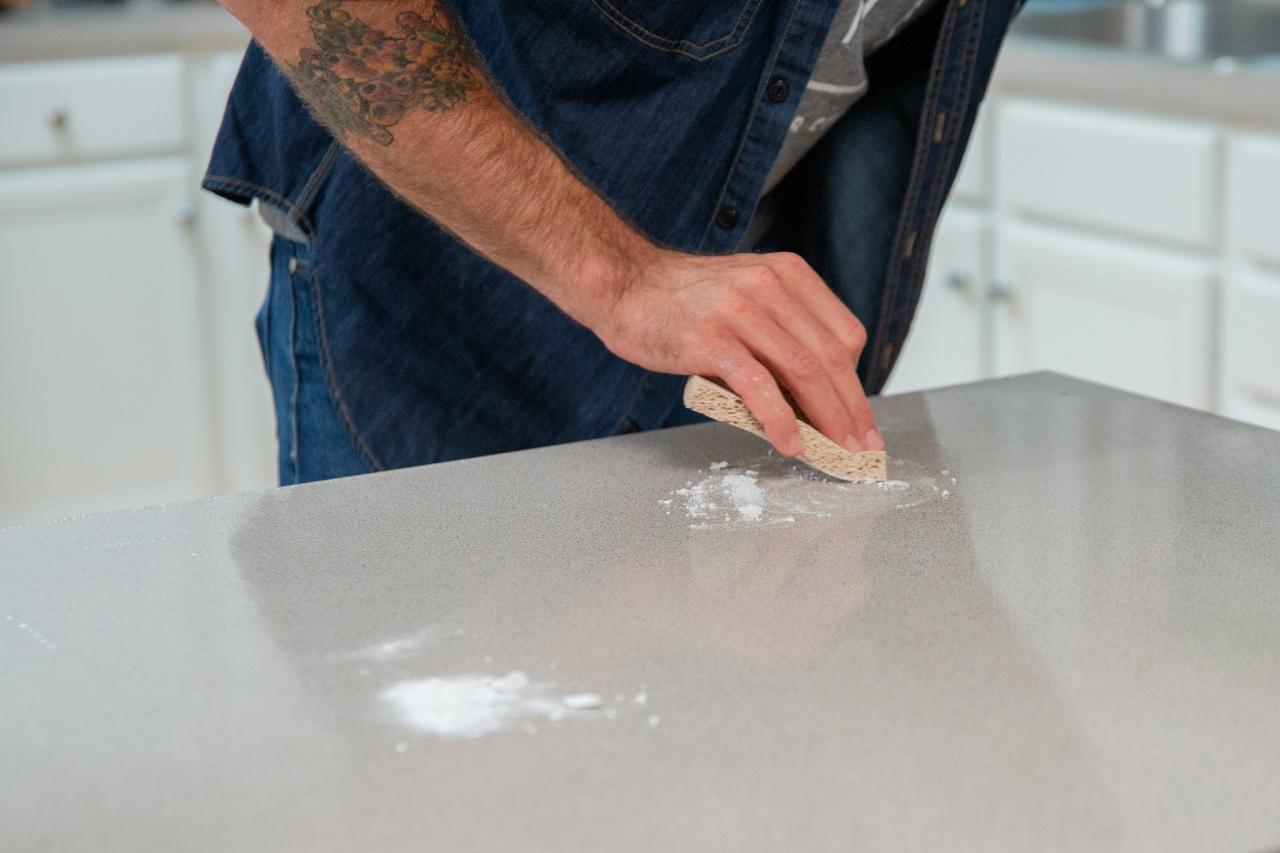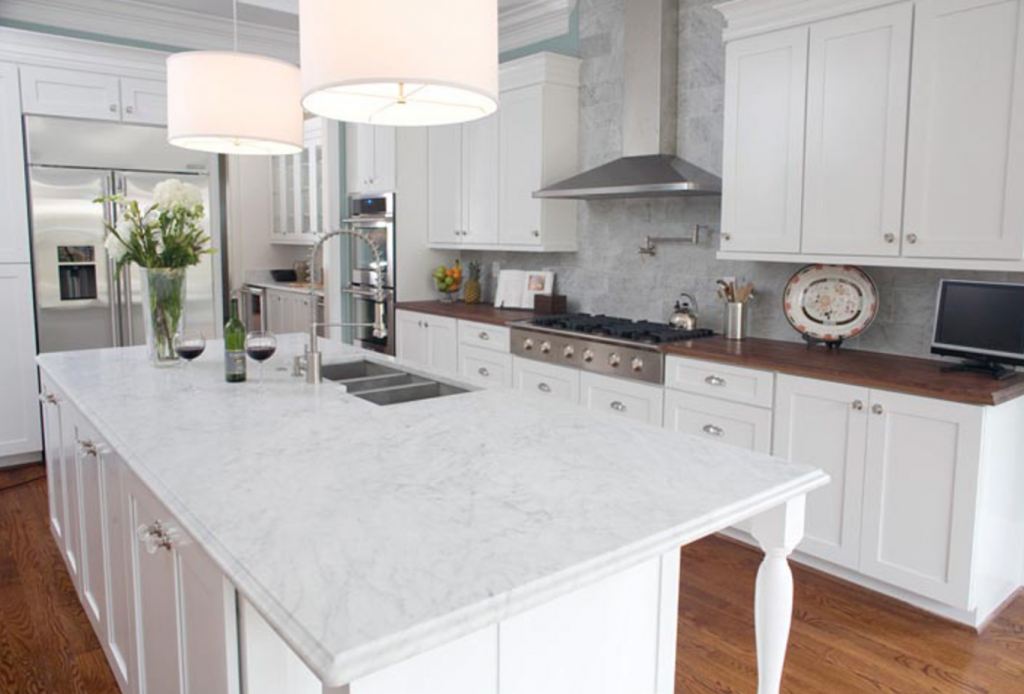Cleaning white kitchen countertops requires a thoughtful and careful approach to maintain their pristine appearance. White countertops, often made of materials like quartz, marble, or granite, can be susceptible to stains and discoloration, making it essential to use appropriate cleaning methods. Regular maintenance not only ensures the longevity of the countertop but also keeps the kitchen looking fresh and inviting.
Start by removing any loose debris or crumbs from the countertop surface. Using a soft, damp cloth or a gentle brush will help prevent scratching and ensure a smoother cleaning process. It’s crucial to address spills and stains promptly to prevent them from setting into the porous surface of the countertop.
For everyday cleaning, a mixture of mild dish soap and warm water is effective in removing dirt and grime. Avoid using abrasive or acidic cleaners, as they can damage the finish of the countertop. Gently wipe down the surface with the soapy solution using a soft cloth or sponge, paying attention to any visible stains or spots.
Vinegar and lemon juice, although natural cleaners, are acidic and can damage certain types of white countertops, particularly marble. It’s essential to check the manufacturer’s guidelines for cleaning recommendations and restrictions before using any homemade or commercial cleaning solutions. For quartz countertops, in particular, a pH-balanced cleaner is typically recommended.
To tackle tougher stains or dried-on substances, create a paste using baking soda and water. Apply the paste to the stained area, let it sit for a while, and then gently scrub with a soft brush or sponge. This method is effective for removing stubborn stains without causing damage to the countertop surface.

Avoid using abrasive scouring pads or harsh chemicals, as they can scratch and degrade the finish of white kitchen countertops. Opt for non-abrasive cleaning tools, such as microfiber cloths or soft sponges, to maintain the integrity of the countertop surface over time.
In the case of marble countertops, which are more porous than quartz or granite, it’s advisable to use a sealer to protect against stains. Regular reapplication of the sealer is necessary to ensure continued protection. Always follow the manufacturer’s instructions for sealing and resealing to maintain the effectiveness of the product.
Preventing stains is just as crucial as cleaning them. Use cutting boards and avoid placing hot pots or pans directly onto the countertop surface to prevent potential damage. Coasters should be used for glasses with colored liquids to avoid any potential staining. Taking these preventive measures contributes to the long-term durability and appearance of white kitchen countertops.

For stubborn or deep-seated stains, consult the countertop manufacturer or a professional cleaner for guidance. They may recommend specific products or techniques tailored to the material of the countertop. Professional cleaners experienced in dealing with various countertop materials can provide valuable insights and solutions for challenging stains.
Regularly clean and disinfect areas where food is prepared to maintain a hygienic kitchen environment. Disinfectant wipes or a solution of water and a mild disinfectant can be used for this purpose. Make sure to follow the recommended contact time for the disinfectant to ensure its effectiveness.
In areas with hard water, mineral deposits can accumulate on the surface of white kitchen countertops, particularly near faucets. A mixture of equal parts water and white vinegar can be used to dissolve these deposits. Wipe the affected areas with the solution and then rinse thoroughly with water.
In homes with natural light, especially sunlight, be mindful of potential discoloration over time. Direct and prolonged exposure to sunlight can affect the appearance of certain countertop materials. Consider using window treatments or shades to protect white kitchen countertops from excessive sunlight.
Regularly inspect the seams and edges of the countertop for any signs of damage or wear. Promptly addressing any issues, such as chipping or cracking, can prevent further damage and maintain the overall integrity of the countertop.

When in doubt about a cleaning method or product, test it in an inconspicuous area on the countertop first. This precaution helps ensure that the cleaning solution does not cause discoloration, scratching, or any other damage to the visible areas of the countertop.
Maintaining the cleanliness and appearance of white kitchen countertops involves a combination of regular cleaning, preventive measures, and appropriate care. Whether dealing with everyday spills or addressing stubborn stains, a gentle and informed approach ensures that the countertop retains its aesthetic appeal and durability for years to come.

How to Clean Laminate Countertops HGTV

How to Clean Quartz Countertops – Simple Green

cleaning kitchen countertop stains The Kitchen Showcase

Related articles: